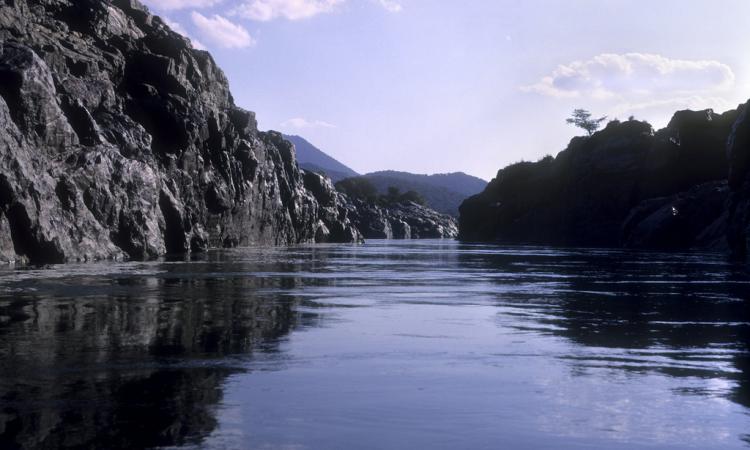
First 'India Rivers Week' to be held in Delhi from November 24-27
A consortium of NGOs including WWF India, INTACH, SANDRP, Toxics Link and PEACE Institute Charitable Trust, with additional support from Arghyam (Bengaluru), International Rivers (Mumbai office), and Peoples Science Institute (Dehradun) are organising the first ever India Rivers Week, 2014 in New Delhi from November 24-27. The theme of the conference is 'Rivers in Crisis' and is likely to be attended by over 100 experts planners, researchers, artists, enthusiasts and activists from different parts of the country to discuss ideas on river restoration.
Devastation in Vizag is a result of flouting CRZ norms: Environmentalists
According to environmentalists, the aftermath of cyclone Hudhud in Visakhapatnam is a result of violations to the Coastal Regulation Zone (CRZ) notification, 1991. As per the notification, no development activity should be taken up within 500 meters of the high tide line. Despite these norms, many hotels and small business ventures thrived along the Visakhaptnam Coast. Along with CRZ violations, the mangrove belt has also been wiped out along the city, which is an another naturally-designed protection against such disaster events.
Gujarat to experience a drop in groundnut production
According to the Solvent Extractors’ Association of India (SEA), Gujarat, which is the largest producer of groundnut in the country, is likely to experience a drop of 44% in groundnut production. The reason for this drop is delayed and irregular monsoon in the state. Also, the groundnut acreage in the state is now 12.2 lakh hectares this year as against 16.6 lakh hectares last year. This is due to the farmers' shifting to cotton crop owing to weather conditions and prices.
Northeast communities at crossroads with Centre over ownership of coal, oil and forest reserves
The tribal communities of the Northeast are struggling for their rights over coal, forests, and oil, the three 'nationalised resources'. Owing to the high price value that these resources have now, the Centre is trying to have its control over them while the State Government is coming up with special policies to savour the benefits from these resources. The tribal communities in Nagaland and Meghalaya are protesting to preserve their rights over oil and coal, while Mizoram, Manipur and Arunachal Pradesh have stood up to protect their forests rights.
IPCC releases its full version of the Fifth Assessment Report
On October 16, the Intergovernmental Panel on Climate Change (IPCC) has released the full version of the Fifth Assessment Report, whose draft was released in March this year. As per the report, food crisis will loom in Asia by 2030 with western Japan, eastern China, the southern part of the Indochina peninsula, and the northern part of South Asia being the most vulnerable. Also, the report has observed that climate-related hazards have adversely affected poverty reduction in south Asia. It also warns of livelihood danger to indigineous communities.
This is a weekly roundup of important news from October 14-20, 2014. Also read last week's policy matters updates.